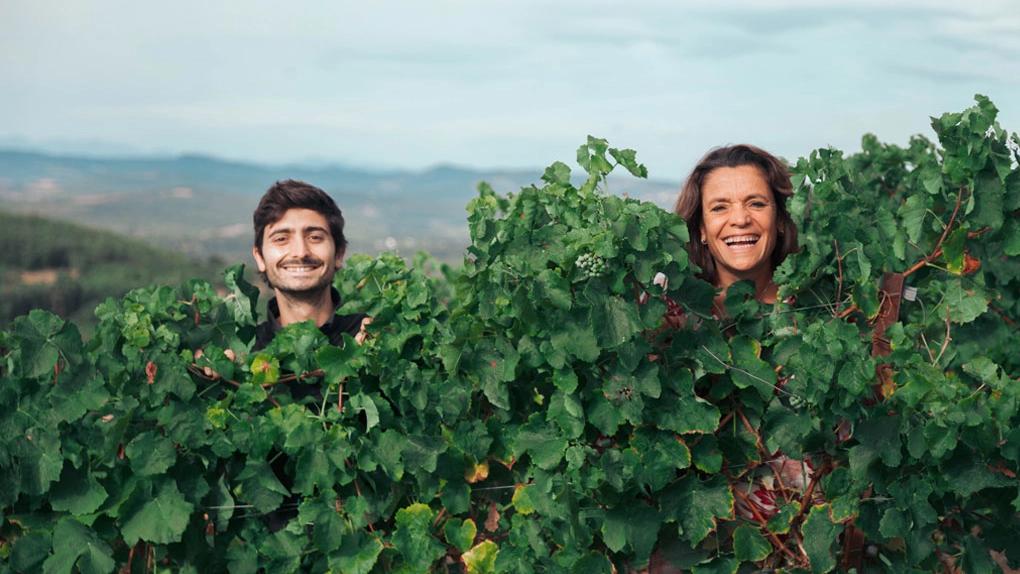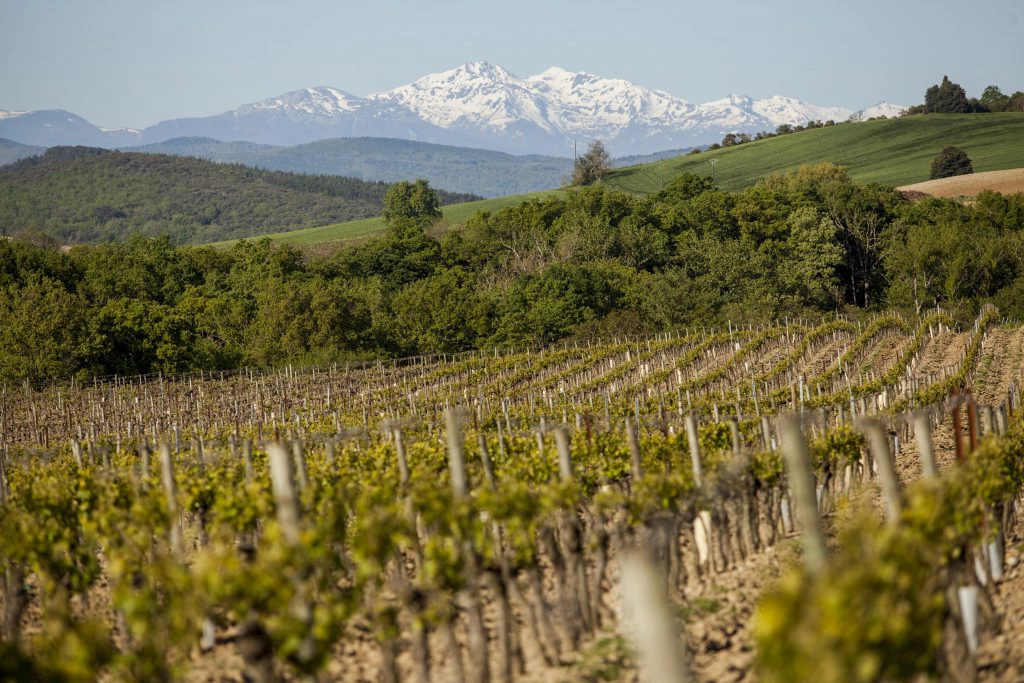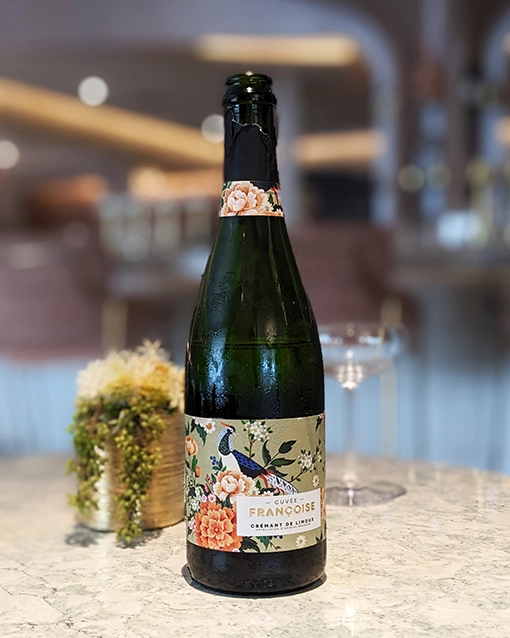In partnership with Serendipity, the following Cuvée Françoise wines are available in both Texas & California markets.
The history of Limoux is inextricably tied to the Antech family, who have been in the business of sparkling wine for 7 generations in Languedoc-Roussillon. They have been instrumental in shaping Limoux’s reputation as a premier wine-producing area and have an incredible record of women leadership. Today, Maison Antech is helmed by vignerons Françoise Antech Gazeau and her son, Baptiste. They honor the spirit of Limoux in all of their offerings, but it’s the Cuvée Françoise collection that caught our attention. These three cheerful wines have been dazzling Texas markets since we introduced them last year and are now available and springing to life across California. Full of verve, quality, and consumer approachability, they’ll have you doubting your loyalty to just “Champagne for my real friends”. And this month we were lucky enough to catch up with Baptiste for an interview delving into the Antech dynasty.
Q: It’s impressive that Maison Antech is in its 7th generation! Can you describe what the collaboration process is like between yourself and your mother, Françoise? What specific roles do you each play and how did that come about?
A: Since 1860, each generation has worked hard and with passion to make its contribution. The particularity, compared to many fields, is that the different generations not only succeed one another but collaborate. The youngest have the chance to be supported and benefit from the experience of their elders to prepare for the future. The wine industry has been through a lot of challenging times and it’s a real chance to have a long-term perspective that is necessary to make the right decisions.
Françoise and I are totally in this pattern, to the extent that for four vintages, I have both the chance to learn from a patient and talented winemaker, but also the mission to bring new ideas. I am very happy that she is so open-minded and willing to explore new areas.
Q: Are there any specific winemaking techniques or traditions that have been passed down through your family that you still use today?
A: Over the past 150 years, winemaking and viticulture techniques have evolved significantly. Even if our family always remains open to developments of new techniques or technologie, we have always prioritized an approach that respects traditions but also local “savoir-faire” specific to Limoux.
As an example, we are one of the last families to put so much energy into putting Mauzac under the spotlight, a native grape variety which is used to make the famous Blanquette de Limoux. While Chardonnay is more “fancy”, we also like to put in the glass of our customers a unique experience, which is above all delicious for sparkling wines. We also believe that small yields and long aging on lees favor the production of great wines. Beyond the technique for us, the most important thing is that the spirit of the family continues, as well as its values. It is above all this point which characterizes our winery.
Maison Antech has a proud and long history of women in winemaking leadership– 5 out of 7 generations have all been helmed by matriarchs.
Q: On the Maison Antech website, Françoise’s biography mentions that she is an advocate for “social and cultural action” in the region. Can you describe some of the projects she is involved in?
A: Limoux is a rural area in which there are not very often events of an international dimension. When in 2009 a group of music enthusiasts asked Françoise to sponsor the launch of an ambitious festival, she immediately agreed to be a patron of the Limoux Brass Festival. This important commitment for a winery of our size reflects a desire to support local projects in the long term. We have been a main partner of this festival for 15 years now, which makes the small town of Limoux shine in France and abroad.
In another register, our domain tries as much as possible to favor local stakeholders. Whether it is our marketing agency, our suppliers of dry materials (cardboard, labels, etc.) or even the company recycling our wastes, we always favor partners from our region. It also allow to minimize our carbon footprint.
Q: Can you explain what the Vinifilles group is and how they are related to Maison Antech?
A: A founding member of “Vinifilles”, an association of women winegrowers from Occitanie, Françoise has been engaged for 15 years to share her passion for wine and promote a more inclusive vision of the wine industry. In partnership with the Soroptimists, charity events are organized regularly and help raise funds to finance the studies of several young girls who want to pursue a career in the industry.
The Cuvée Françoise collection includes Blanquette de Limoux, Cremant de Limoux, and a rosé Cremant– all made in the Traditional Method.
Q: Which of your wines from Cuvée Françoise do you consider to be your hallmark and why?
A: The Cuvée Françoise Blanquette is obviously the most emblematic wine of our estate. Its legendary history as the first sparkling wine in the world in 1544, the fact that it was made with an indigenous grape variety (Mauzac) and that it cannot be found anywhere else in the world, makes it truly unique… and delicious!
Q: As an expert in the regional laws of this area, can you tell us what is the difference between Blanquette de Limoux and Cremant de Limoux?
A: These two wines are made in the same way with the traditional method. This means that they are harvested by hand, delicately pressed, fermented in the bottle and aged in contact with the yeasts for many months. The only difference lies in the grape variety that is used since Blanquette is made exclusively with Mauzac, while Crémant can be made from Chardonnay, Chenin Blanc and Pinot Noir.
Q: It’s our understanding that the Blanquette de Limoux AOP has specific minimums for producing wines from the Mauzac grape. For those of us unfamiliar with the varietal, can you talk about the character of this grape? Why is it important to Limoux and what are some identifying characteristics?
A: As explained before, Blanquette is a traditional method [wine] made with the Mauzac grape. This grape variety grown almost exclusively in Limoux is extraordinary but still too little known to wine lovers. Planted here in Limoux since the Middle Ages, this grape variety is particularly suited to the production of great sparkling wines. When it is harvested by hand and at the right time, it offers a charming nose with aromas of orchard fruits and white flowers but also and above all a fresh and balanced palate. Fresh pear and quince are the main aromas, which are enhanced by spices and honeyed notes when it is aged for a long time (like ours). Its lower acidity than many other grape varieties also makes it possible to create perfectly balanced and delicious Brut Nature.
Q: How do you approach sustainability and environmental stewardship in your winemaking practices?
A: We try to be as respectful of traditions as possible but also of our environment. This approach is obvious in the vineyard where we have been practicing organic farming since 2020, but also where we are experimenting with grape varieties that could be interesting from a global warming perspective or developing polyculture with the production of olive oil. In the cellar we now use lightweight bottles and bio-sourced cotton paper. We have also improved the insulation of many buildings and implemented the recycling of 100% of the waste produced on the estate. Finally, because human resources are crucial to the success of our project, we have decided to implement, starting in 2022, the establishment of profit-sharing for all our employees.
Q: The label art for Cuvée Françoise is very popular with consumers. Is there a story behind the floral labels?
A: Each person who meets Françoise could describe her personality with the following words: joyful, funny, passionate and unique. When it came to Françoise to create a label with her name, it was only natural that her personality would be reflected in the design. Nicolas Martin is a very talented graphic designer from Montpellier, who was able to reflect the personality of the winemaker on the packaging. If the labels are a bit different from the codes of the world of sparkling wines, it is also because for 25 years this is what Françoise has been doing.
Q: Last, do you have any local favorite dishes that pair particularly well with Cuvée Françoise wines?
A: We do love pairing sparkling wines with food. An amazing pairing, that we enjoy very much, is raw fish, like sushi or ceviche. The freshness and delicate taste of the fish is wonderful with a glass of Crémant Rosé, for example. We also like fresh goat cheese with Blanquette. It’s delicate and charming aromas of pear will match the intensity of the cheese… Cheers!
The Antech family’s enduring legacy in the sparkling wine industry has left an indelible mark on Limoux’s winemaking heritage. With eons of expertise and a commitment to innovation, Françoise and Baptiste continue to uphold the family tradition while bringing a fresh perspective to Maison Antech. As their Cuvée Françoise collection finds its way to new markets, it exemplifies not only the quality and accessibility of Limoux wines but also the unwavering dedication of the Antech family to sharing the spirit of their beloved region with the world. So grab some takeout sushi or a log of goat cheese and get to tasting!






